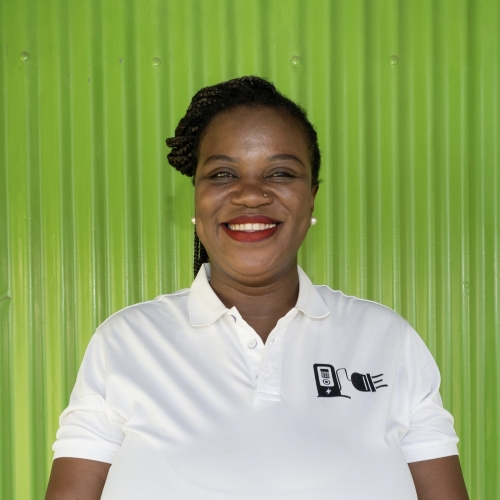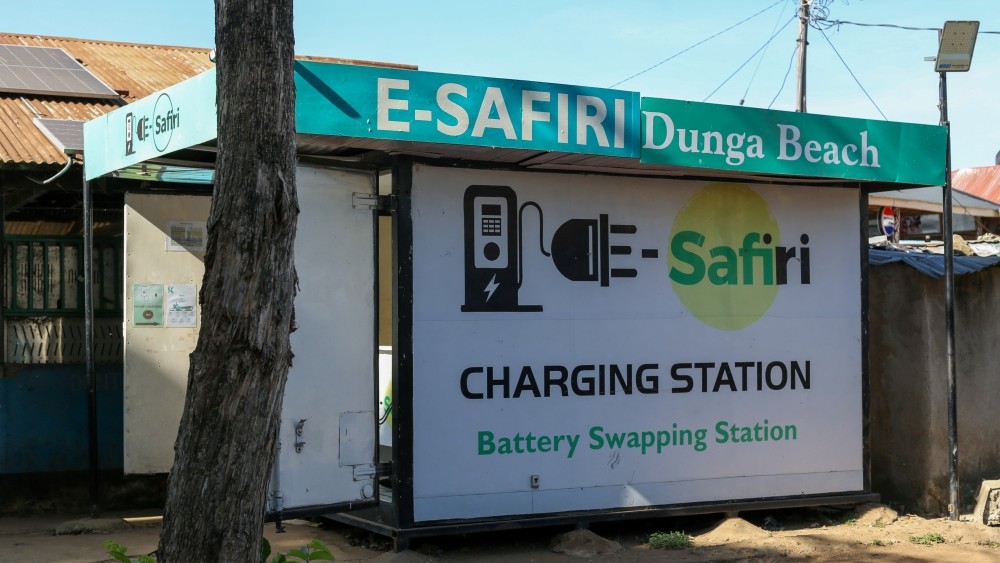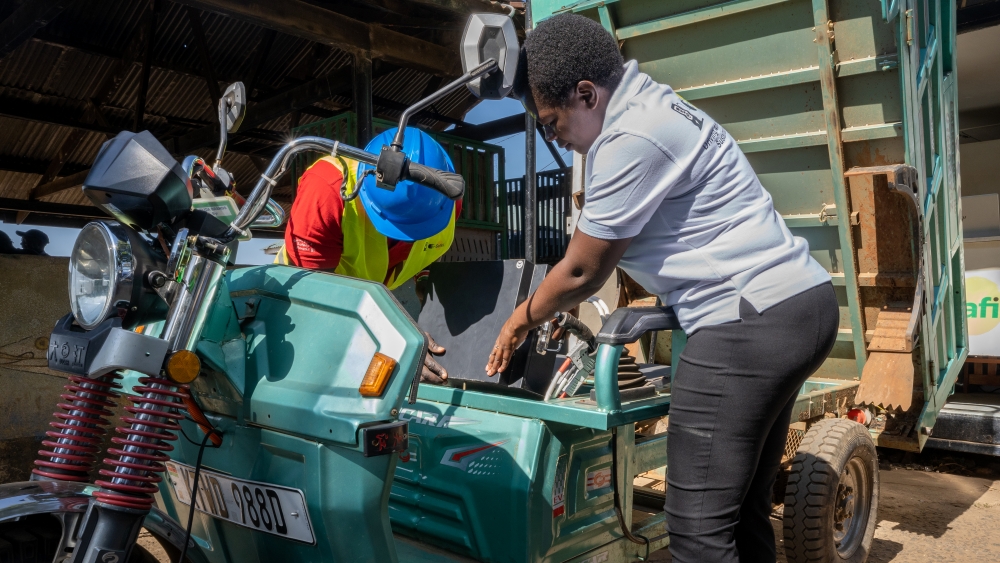E-Safiri, a Kenyan startup, uses pay-as-you-go and Mobility-as-a-Service models to promotes EV adoption, empower women and youth, and expand nationwide charging infrastructure with renewable and grid energy.
Carol’s story
Born in Kenya, Carol Ofafa spent her childhood between Homa Bay and Kisumu, rural and peri-urban communities with limited opportunities. A scholarship took her to Canada, where she saw first-hand the stark contrast in resources compared to where she grew up.
While studying in Glasgow, the question, “What interests you?” on an application form sparked a realisation: she was passionate about the use of renewable energy in transport and wanted to explore opportunities to increase access to electric vehicles in Africa. While Europe was making bold commitments to transport sustainability, such as promoting e-bikes and electric buses for public transport, Africa importantly lacked key infrastructure to support this transition. With her business partner Ruben, she began to champion the adoption of basic electric mobility via battery-swapping and recharging stations for powering EVs such as e-bikes.
The innovation
E-Safiri is primarily a battery-swapping service, providing a convenient and accessible solution for EV users across four locations in Kenya. Battery swapping is essential in addressing the lack of home charging infrastructure, particularly in rural areas where many households do not have electricity. By offering charging and swapping cabinets for electric bicycle and motorbike batteries, E-Safiri eliminates the need for personal charging setups, making EV use more practical.
Each E-Safiri hub is powered by solar energy, with IoT-enabled batteries that provide real-time status updates, ensuring proactive maintenance. A central dashboard collects data from charging hubs, monitoring energy usage to optimise efficiency and reduce costs. Since launch, E-Safiri has introduced backup generators connected to the grid, ensuring uninterrupted service during periods of low solar output caused by bad weather.
Making a difference
Beyond mobility, E-Safiri ensures excess energy is not wasted but instead benefits the wider community. In Kenya, businesses cannot sell surplus power generated by the solar panels back to the grid, unlike in Europe. To address this, E-Safiri repurposes excess energy for productive uses, creating a vital resource hub. The charging stations double as community power centres, providing electricity for those without home access. After receiving complaints when stations were turned off, E-Safiri now keeps them running, allowing locals to charge phones, ice makers, and cooler boxes; operate solar dryers; and support essential services such as street lighting.
A key pillar of E-Safiri is female empowerment. To address basic access to transport, particularly for women in rural areas, E-Safiri provides an easily accessible, and affordable pay-as-you-go option, designed to empower women and communities, who often lack independence because of social barriers such as not having driving licences.
Women are at the forefront of operations, running the charging hubs and ensuring smooth service delivery. By integrating sustainability with social impact, E-Safiri is not only redefining mobility but also fostering economic independence and opportunity for women in rural communities.

I grew up in a community where female economic empowerment was something foreign to us. When I got out of this environment via a scholarship scheme in Canada, I realised there was a different life for me, and I wanted to take this home to Kenya and provide economic independence for women in rural communities.


